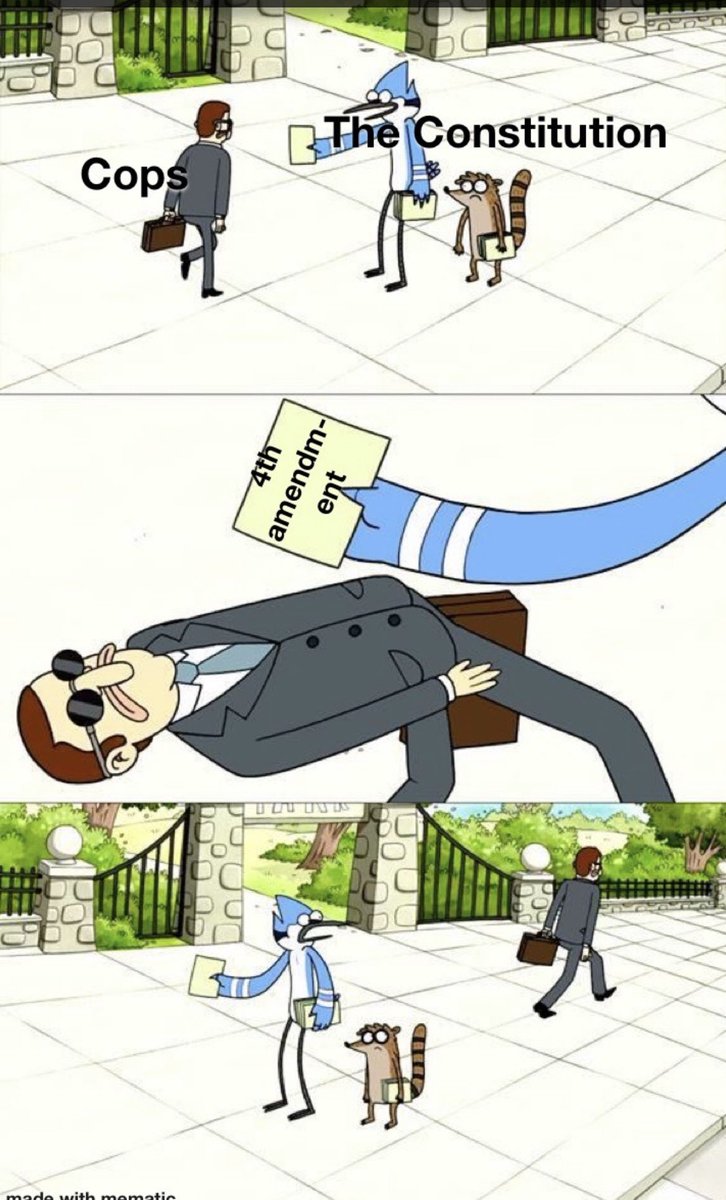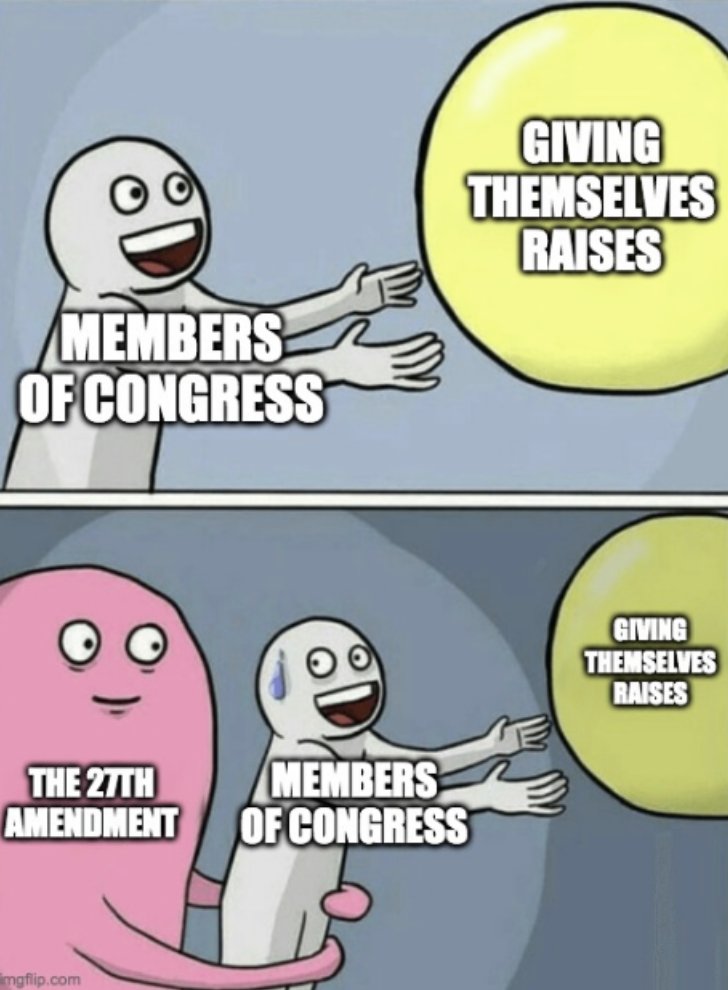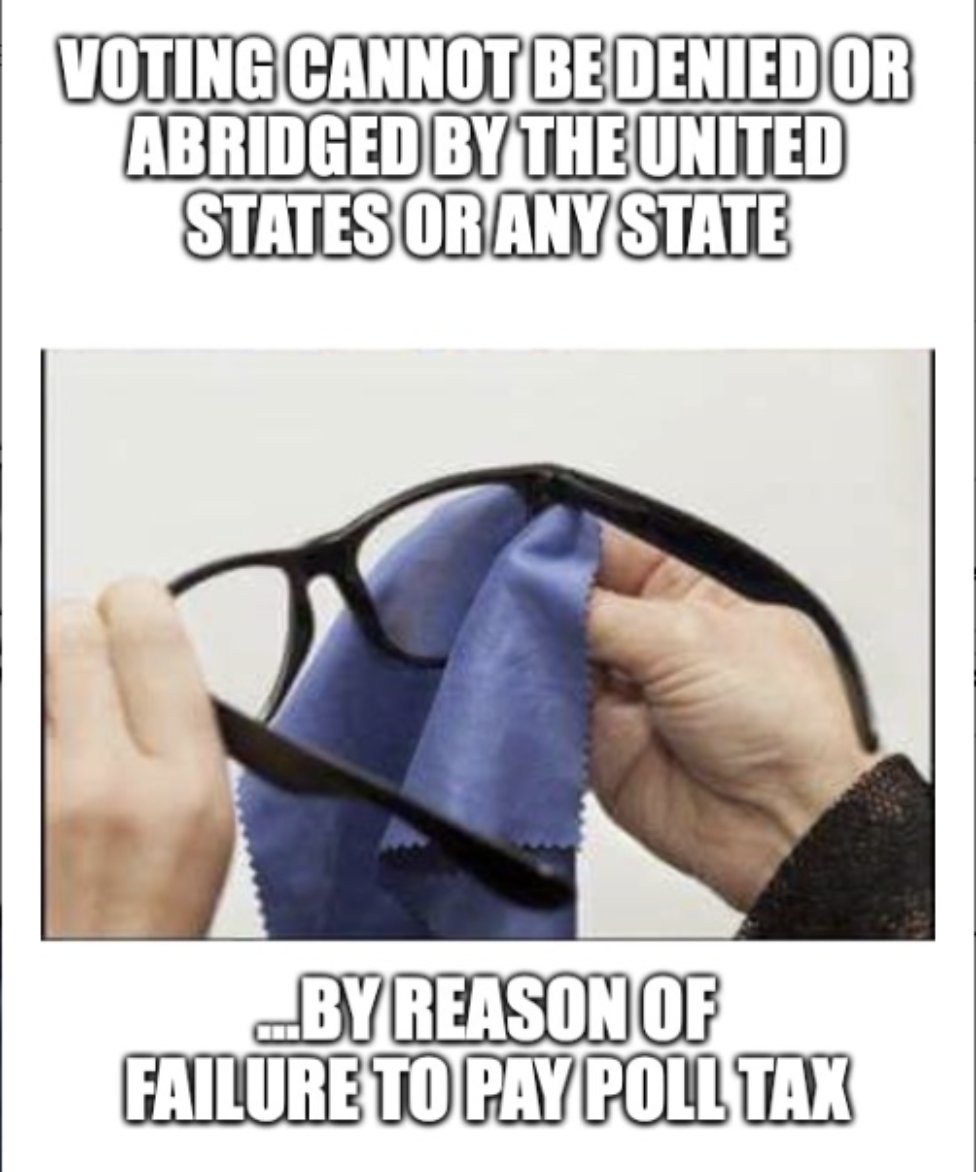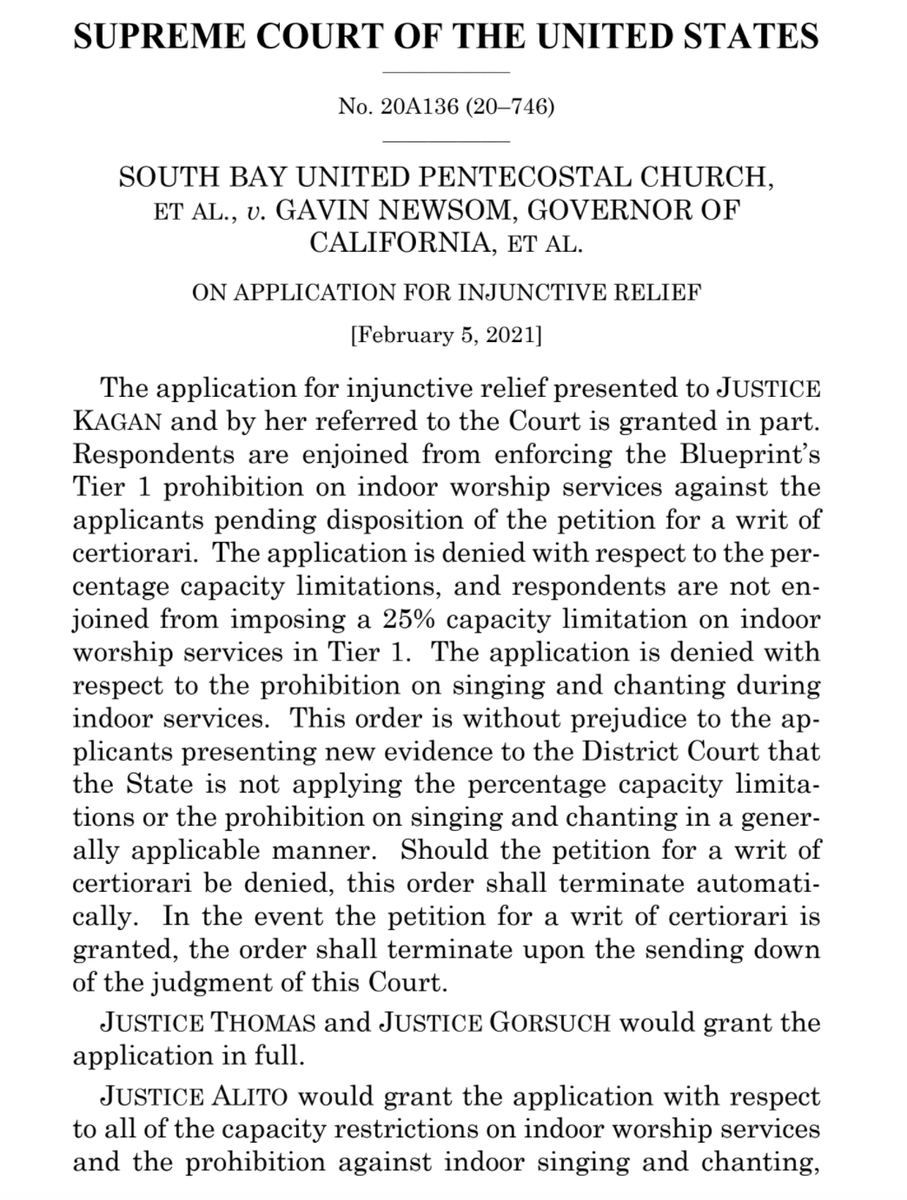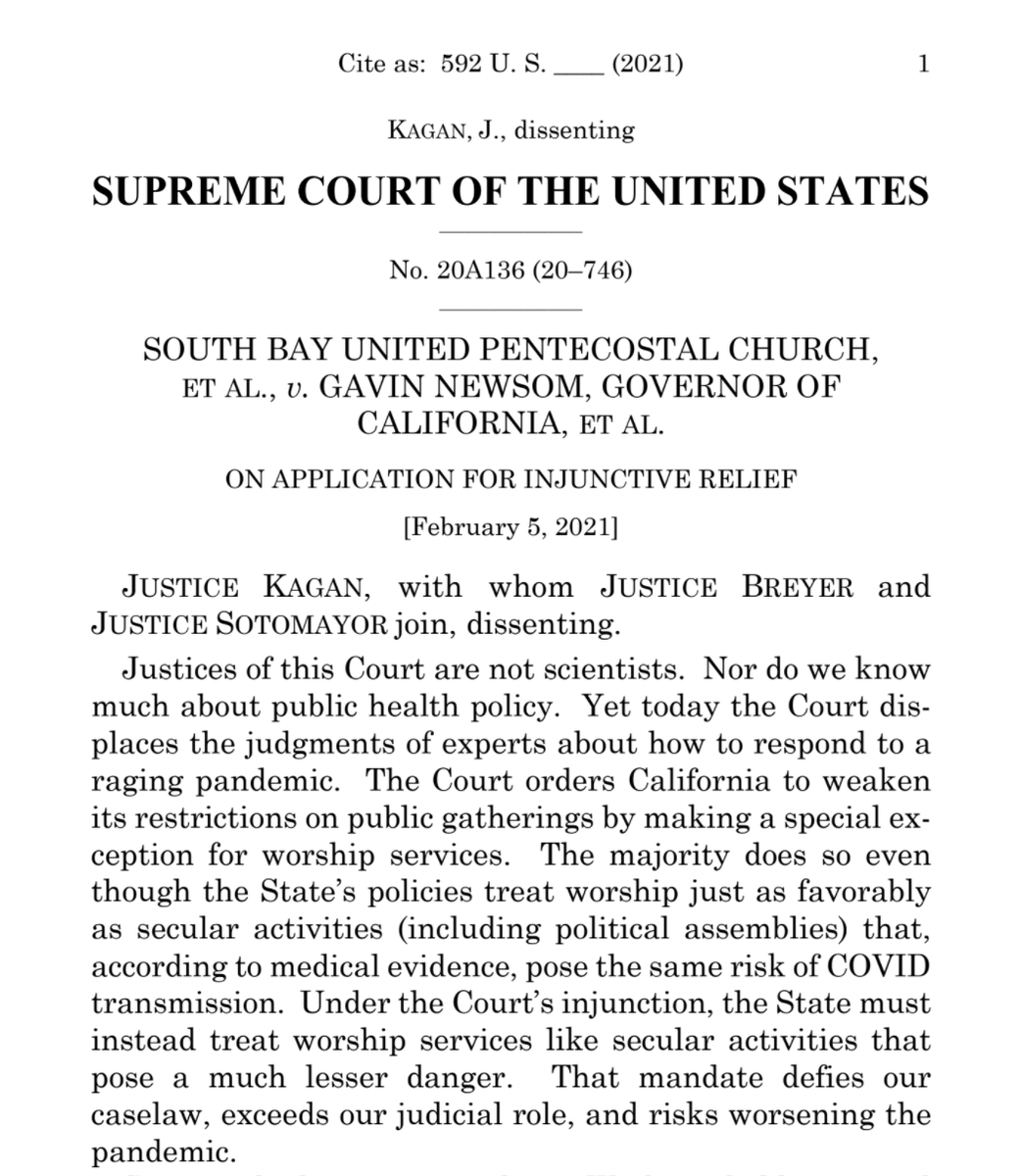
Last week, in a Supreme Court case that could cripple Voting Rights Act lawsuits challenging this type of racially targeted voter suppression, Justice Elena Kagan sounded a pretty effective warning to her center-right colleagues.
nytimes.com/2021/03/06/us/…
nytimes.com/2021/03/06/us/…
There's no chance Arizona Democrats are going to persuade a SCOTUS majority that two AZ laws that seem to impose a mildly disparate burden on minorities violate sec. 2 of the Voting Rights Act. Even the Biden administration does not argue those laws violate the VRA.
The whole enchilada is how the Court is going to construe section 2 for *future* challenges to restrictive voting laws like the transparently racist bills in Georgia. This was Kagan's concern in a series of hypos she threw at Mike Carvin, the lawyer defending the AZ laws.
For each hypo, the Q was the same: ok, would *this* violate section 2? And Carvin gave a series of weak and inconsistent responses followed by a demonstrably false claim that all of them are imaginary and thus irrelevant. First: making it 10x harder to vote for blacks isn't OK. 



Next up, a hypo that looks very much like what Georgia is trying to do: shorten early voting and eliminate Sunday voting. This too will impact black voters 10x more. Carvin: uh, that's fine, because other stuff closes on Sundays blah blah. Extremely weak answer. 



Now the third hypo, and it's less realistic: the only polling places are in country clubs.
Carvin: that isn't ok.
Kagan: thanks that's helpful!

Carvin: that isn't ok.
Kagan: thanks that's helpful!


Hypo #4 is about voting hours, again with a 10x worse impact on minority voters.
Carvin: uh....these things have never existed in the real world.
Kagan: not so fanciful, mon frere

Carvin: uh....these things have never existed in the real world.
Kagan: not so fanciful, mon frere


Upshot: Kagan has an acknowledgment from a Republican lawyer that there are some circumstances—including several actual bills being bandied about in state legislatures—in which laws impacting minority voters ARE vulnerable to section 2 challenges EVEN IF the AZ laws are not. 

And...we're done. Kagan put on a master class in how to milk everything out of a couple of minutes of questioning and—her trademark technique when she knows she doesn't have the votes—seek to limit the damage of an impending loss.
END.
END.
ps. Kagan once had Justice Kennedy mainly in view with tactics like these. Then it was the chief. Now she’s got to grab Roberts and another (likely Kavanaugh or Barrett) to forge a majority. An increasingly tall order.
• • •
Missing some Tweet in this thread? You can try to
force a refresh


